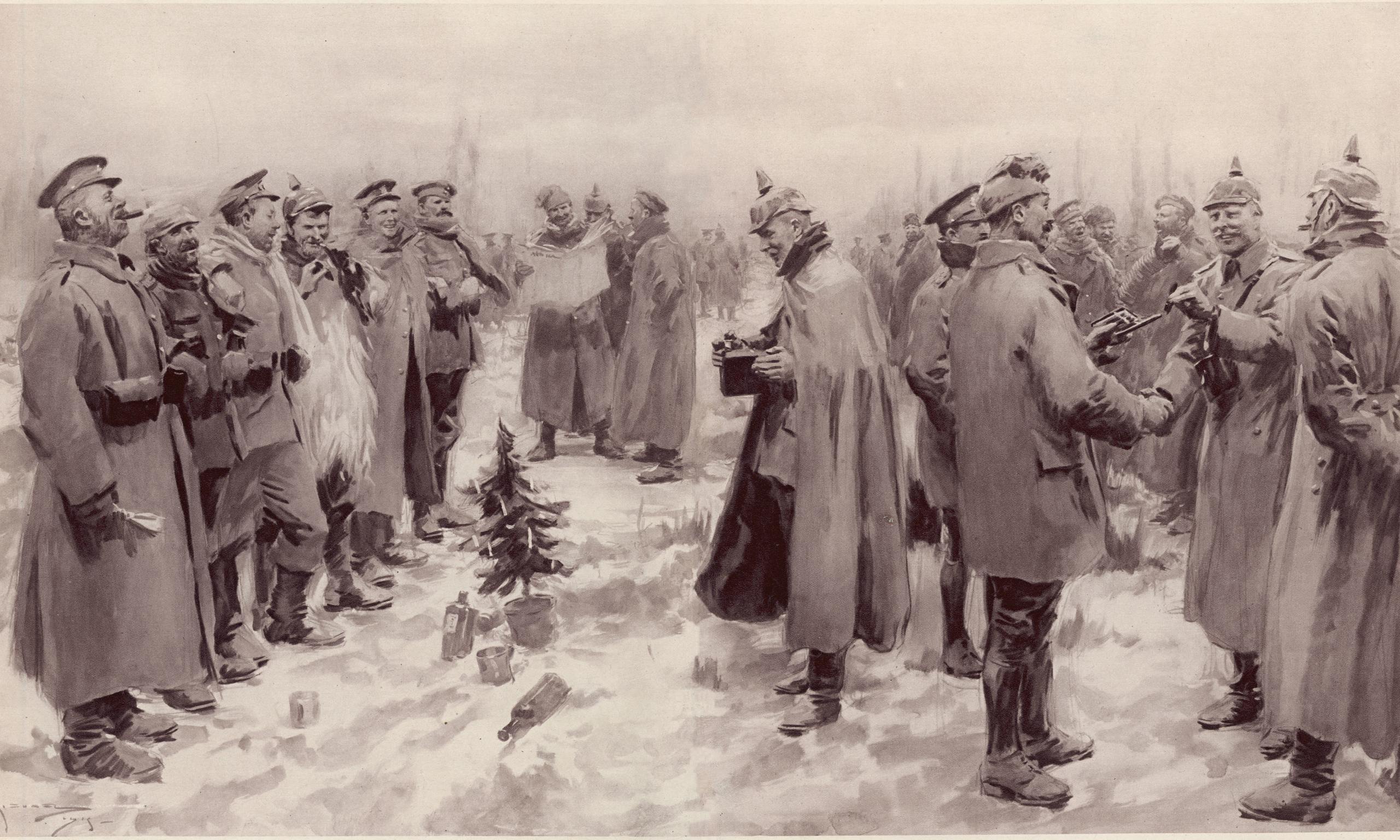Impromptu
Christmas Truce, was unofficial and impromptu cease-fire that occurred along the Western Front around Christmas, during World War I. The pause in fighting was not sanctioned by commanders on either side. What actually happened is that along some two-thirds of the 48-km front, the guns fell silent for a short time. However, many officers disapproved, and headquarters on both sides took strong steps to ensure that it could never happen again. While it lasted, though, the truce was magical.
In the week leading up to 25 December, French, German and British soldiers crossed trenches to exchange seasonal greetings and talk. In some areas, men from both sides went into No Man's Land on Christmas Eve and Christmas Day to mingle and exchange food and souvenirs. There were joint burial ceremonies and prisoner swaps, while several meetings ended in carol-singing. Men played games of football with one another, creating one of the most memorable images of the truce.
What all sides in that war all shared was - misery, and in some cases closeness: they were separated by no more than 46 metres.
The morning
By Christmas Eve, some lower-ranking British officers had begun ordering their men not to fire unless fired upon, the policy later came to be known as “live and let live”.
The first signs that something strange was happening occurred on Christmas Eve. At 8:30 p.m. an officer of the Royal Irish Rifles reported to headquarters:
_______ ,, _______
“Germans have illuminated their trenches, are singing songs and wishing us a Happy Xmas. Compliments are being exchanged but am nevertheless taking all military precautions.”
________________
As morning broke on Christmas Day, German soldiers emerged from their trenches, waving their arms to demonstrate that they had no ill intent. When it became clear that they were not carrying weapons, British soldiers soon joined them, meeting in No Man’s Land to socialize and exchange gifts.
The stories of a Christmas Truce refer to a suspension of hostilities only between the British and the Germans. The Russians, on the Eastern Front, still adhered to the old Julian calendar in 1914, and hence did not celebrate Christmas until January 7, while the French were far more sensitive than their allies to the fact that the Germans were occupying about a third of France—and ruling French civilians with cruelty.
Not everyone was pleased with the truce, according to one account, a German scolded his fellow soldiers during the Christmas Truce: “Such a thing should not happen in wartime. Have you no German sense of honour left?” That 25-year old soldier’s name was Adolf Hitler.
☈


